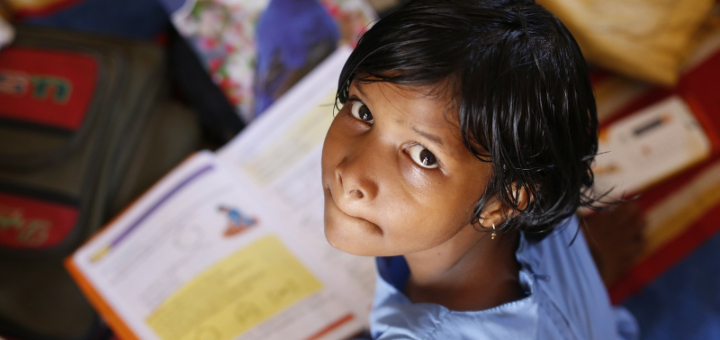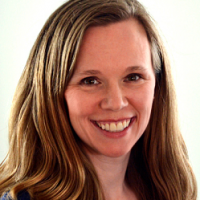
Pieter Bruegel the Elder [Public domain], via Wikimedia Commons[/caption]I'll bet the Tower of Babel was pretty impressive. Our educational system is pretty impressive too. But are we building a tower like Babel? Give me a pretty chart, a simplified rubric, or an app that unifies my teaching (home or school) and I'll be your best friend. I go gaga over theories of education and their quick takeaways. That and a colorfully decorated room. Send me around a public high school and I salivate over the posters on the wall, the art department, the tech and science opportunities, the graphic organizers in English. ... Evidently, I'm not the only one who is enraptured by the framework and scaffolding in our education today. Find yourself in a room full of teachers and they will be chatting away about higher level learning, referencing Bloom's Taxonomy as if it were as sure as the ground beneath them. But the more I read the lives of the saints, the more I study philosophy, the more I go to spiritual direction -- the more my vision of education takes on truth, goodness and beauty -- and our current mode of education begins to pale. Now, honestly, I don't have a clear or articulate argument against Bloom's Taxonomy specifically. I like it and find it helpful in the classroom and at home. However, it (and our whole education system) seems to be skewed at its base and aim. An emerging hero of mine is St. Thomas Aquinas. When he was educated, the purpose for education was illumination. The process of education was moving from darkness to light. It was a pursuit of reality -- of what is.
Copyright 2019 Carrie Soukup
Image credit: Pixabay.com (2013), CC0/PD
Are we missing our foundation?
As a Christian, I say that my foundation is Christ. And He is. But if most of the theories about education (like Bloom's taxonomy) that I've internalized are actually developed with a worldview which excludes God then my understanding of education may be weak. I'm not talking about teaching the Bible in schools or having kids pray. I'm not talking about faith. I'm not talking about belief. I'm talking about logic. I'm talking about the foundation of everything. Your starting point.Are we aiming for the wrong thing?
I have an an-going debate with friend of mine about whether or not college should be a liberal education or vocational training. My friend, Biz, cannot see any reason why people should spend tens (or hundreds) of thousands of dollars and only walk away with the ability to work at Trader Joe's. I, on the other hand (who make less money than those at Trader Joe's), am captivated by the idea that we are all built up by spending prime years of our lives striving to know what is good and true and beautiful. I love to study for knowledge's sake, not for some other purpose. Well, most people probably side with Biz. I might even jump the fence when it comes time to pay my kids' tuition bills. But what really is the purpose of education (college or otherwise)? Classic schools might have a motto like, "striving to know truth," and a modern one would be, "equipping students to change the world through innovation." Do you notice the difference in aim? The classic seeks to serve the student for the sake of the student. The modern seeks to serve the world by getting people ready to work. All of this can pretty much be a fun banter over coffee but if in practice, innovation wins and this system has become unhitched from the nature of reality -- from the true, the good and the beautiful -- then we are not just talking about whether Martha or Mary was better, we are talking about a major utilitarian machine in the hands of I don't know who or what.Metaphysics
So, what is the foundation of true learning? Well, an easy Sunday school answer is, of course, "Jesus." And we would, of course, be right. But that answer doesn't really get us anywhere. Let's unpack that a bit. Perhaps you've heard of Christ as "the Word of God" or "logos." If we say, "logos" which is the order of everything that is then we are talking about the nature of reality. Which brings us to metaphysics. Ugh. Metaphysics. You lost me. My sister has a PhD in philosophy and I've been going on long walks with her for years, debating and talking about metaphysics but I still don't really know what it is. It is defined as "a division of philosophy that is concerned with the fundamental nature of reality." I just don't speak that language. It is not native to me. But when I look at the saints and our current world, something tells me I need to learn it.The modern scientific approach
Why do we need metaphysics? Without it, we are left with only the material world. The problem is that Bloom's taxonomy and much of our educational frame work is scientism or materialism (a theory that physical matter is the only or fundamental reality and that all being and processes and phenomena can be explained as manifestations or results of matter ). It reduces everything to that which is measurable. It looks only to sense observation. While this is a good portion of science, it is not the whole of reality, nor is it purely logical. It eliminates metaphysics, which is more basic and foundational than the physical sciences. It eliminates forms and essences. It eliminates purpose and meaning. If your allowable knowledge can only come from what is material, then you cannot ever know God, nor love. When a portion of the whole of reality switches to become the master and is set up as the judge or measuring stick of all of reality, the results are disastrous. Scientism's natural fruit is complete relativism, spiraling to might makes right. Maybe I'm blowing things out of proportion. It sounds doomsday. But perhaps you can see the seeds of it.What about Catholic schools?
I think the Catholics teachers in the Catholic schools have been breathing the same air I have - somewhat polluted. Most have been educated by the educational theories that those in public schools have. And so, even when we say that we aspire to have a Catholic school, and we pray during class and teach Scripture and ethics courses, we are still missing the point of education if all of our classes do not grow out of and toward what is true.Ill-equipped
My kids' experience of education is one of good will. My children have gone through both Catholic and public schools that are filled with loving, cheerful people. Along with good-hearted secularists, many of the teachers are faith-filled Christians and devout Catholics. My children have been loved. But they and I are ill equipped to set the foundation of our educational system upon the truth. And so, we pray. We love. And we try to care for kids the best we can. But we need foundational help. And that's where I end: with a hope for help. While I feel like people who are much smarter than I am and native thinkers in metaphysics have A LOT of work to do to make philosophy tangible for educators in today’s day and age, perhaps there are things you and I can do to stop adding bricks to the Tower of Babel and instead build our foundation on the Logos. What can we do?Copyright 2019 Carrie Soukup
Image credit: Pixabay.com (2013), CC0/PD
About the Author

Carrie Soukup
Carrie Soukup writes and teaches courses at GraceFinders.com, to help others connect intimately with God in and through the craziness of life. Author of two books on prayer, she has served as a curriculum writer, campus minister, high school theology teacher, and retreat director. On a great day, you can find her hiking, cycling, or eating chocolate with her husband and four children.


.png?width=1806&height=731&name=CatholicMom_hcfm_logo1_pos_871c_2728c%20(002).png)
Comments